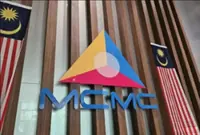Fahmi said MCMC will continue its engagement sessions with all stakeholders to gather insights and recommendations, adding that the issue of online crimes, including access to gambling, prostitution, pornography websites, and similar content, is very concerning and requires comprehensive solutions. — Bernama
PETALING JAYA: The Malaysian Communications and Multimedia Commission (MCMC) has been ordered to stop the implementation of DNS redirection which was seen as controversial.
Communications Minister Fahmi Fadzil announced today (Sept 8) on X (formerly Twitter) that the decision was made after taking into consideration feedback from individuals who attended MCMC's engagement series and members of the public.
"At the same time, MCMC will continue engaging with all stakeholders to gather input and recommendations, ensuring that the goal of a safer Internet can be achieved together," Fahmi added in his statement.
He said the engagement sessions with all stakeholders will allow MCMC to gather insights and recommendations, adding that the issue of online crimes, including access to gambling, prostitution, pornography websites, and similar content, is very concerning and requires comprehensive solutions.
He also stressed that the government will not compromise on the issue of cybercrimes.
Originally, MCMC had instructed all Malaysian Internet Service Providers (ISPs) to implement public Domain Name Server (DNS) redirection by Sept 30.
DNS Redirection will stop those using public DNS services, such as Google's DNS (8.8.8.8 or 8.8.4.4) and Cloudflare's DNS (1.1.1.1 or 1.0.0.1) to bypass government blocks.
DNS is a system that turns easy-to-remember website names (like www.thestar.com.my) into the numeric IP addresses that computers use to locate websites on the Internet.
However, with DNS redirection, requests to access blocked websites are rerouted to the DNS servers of a local service provider, effectively blocking access to the intended sites.
MCMC had said previously that the measure was intended to protect vulnerable groups from harmful online content.
However, the directive garnered backlash among users concerned about censorship of online content.
Lembah Jaya assemblyman Syed Ahmad Abdul Rahman Alhadad or popularly known as Altimet described the move as "draconian" in a post on X on Sept 7, adding that there are other ways to protect vulnerable groups.
"Possible significant adverse effects to the digital economy that we as a nation are trying to cultivate further. This is not the best way forward. I disagree with this decision," he posted.
Kampung Tunku assemblyman Lim Yi Wei also chimed in online, describing the move as a form of censorship.
She said the measure was inefficient, could introduce further cybersecurity risks, and was counterproductive to the government’s efforts to promote tech startups, innovation, and data centres.





